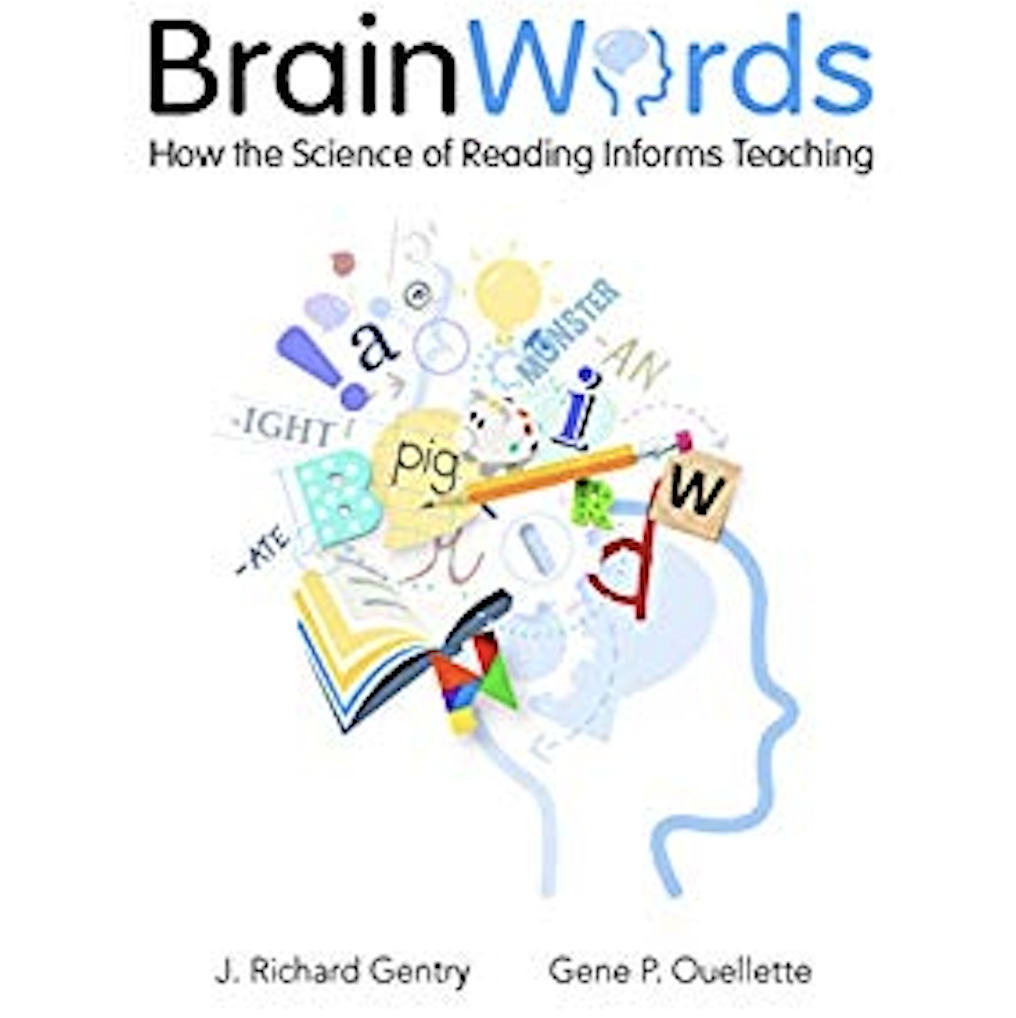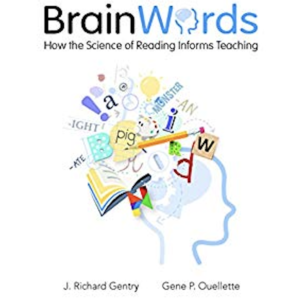

Brain words, as used by the authors, are words for which students know the pronunciation, meaning, and spelling, such that they can read, write, and use the word correctly and comfortably. This book seeks to help instructors guide students in building brain words by offering ways to assess reading abilities as well as scientifically-backed practices for teaching reading. They emphasize especially the overlooked importance of teaching spelling. The authors offer specific, practical tips for teaching reading in kindergarten through sixth grade. They conclude with advice for schools and parents about how to support students with dyslexia.
Learning to read does not happen automatically. In fact, reading is effortful and as others, such as Maryanne Wolf, have explained, the brain’s distributed reading circuitry is not present at birth but rather develops with exposure to and instruction in reading.
Gentry and Ouellette state that most teachers are not trained in effective literacy instruction practices, and many do not have access to science-based teaching resources. As such, the authors review best practices for teaching reading in light of current research.
As Daniel Willingham and other reading experts have argued also, Gentry and Ouellette state that using both phonics and whole-word approaches to teaching reading is more effective than relying on only one of these strategies. Phonics is necessary for building reading skills, while whole-word reading provides motivation for engaging in active reading. Spelling is a critical step on the road to reading with comprehension, and yet accountability assessments do not measure spelling competence. As a result, many schools do not have spelling curricula. The authors call for a spell-to-read approach to reading instruction. They offer reflective questions that teachers can consider to improve their reading instruction.
Gentry and Ouellette detail a quick and effective way to determine students’ developmental reading phase based on a carefully designed spelling test. Students’ performance on this test can be parsed into phases. The non-alphabetical phase involves children using shapes that might resemble letters but not writing in any recognizable form. The pre-alphabetical phase involves using letters but the letters the child writes do not systematically correspond to sounds. The partial alphabetical phase involves some matching between letters and spoken language. In the full alphabetical phase children spell with one letter to represent each sound. When children can spell nearly or completely correctly, they can begin to read independently. With an understanding of students’ reading and spelling abilities it is possible to optimally facilitate reading instruction.
The authors suggest a “listen first” approach to learning spelling and reading in which students first hear a word, then say the word, write the word, read it, and use it. In older grades a spelling pretest, which students correct themselves while reflecting about the reasons for their mistakes, is an effective teaching tool. The most important measure for improving students’ vocabulary and reading abilities is to support the students in reading more.
Between five and twenty percent of the population is affected by dyslexia. This reading disorder has a neurobiological and a genetic basis. People with dyslexia are not less intelligent nor are they less hard working. The authors explain common signs of dyslexia at different ages (e.g., abnormal spelling, trouble articulating words, or trouble with arbitrary sequences). Early identification of dyslexia is very important for helping these students learn to read and achieve academically. Gentry and Ouellette conclude with suggestions for how parents and schools can support students with dyslexia.
Brain Words will inform educators about recent advances in the science of learning while also offering practical and effective techniques for improving reading instruction. This book can help educators help more students learn to read well.
Gentry, J. R., & Ouellette, G. (2019). Brain words: How the science of reading informs teaching. Stenhouse Publishers.




